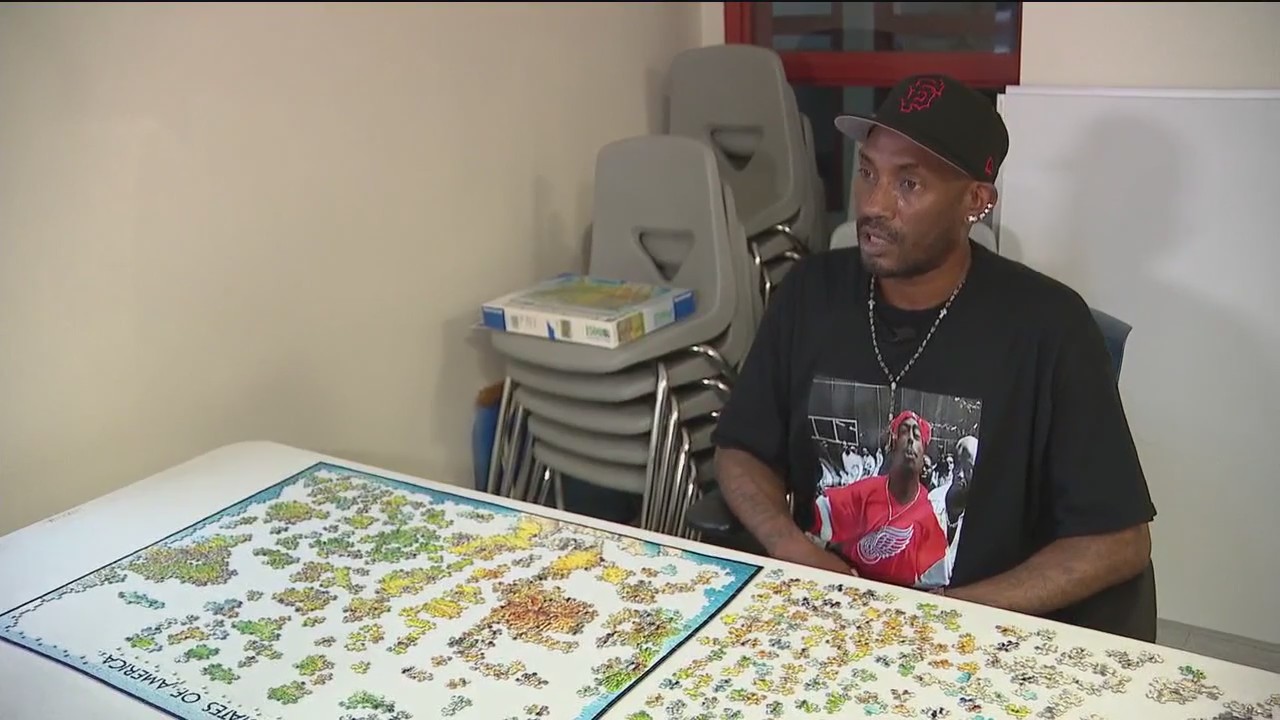San Francisco drug recovery program rebuilding lives

Bay Area man finds sobriety through San Francisco recovery program
The Salvation Army is working to combat San Franciscos drug addiction problem with a recovery program. We spoke with one man who turned his life around and found sobriety after hitting his rock bottom.
SAN FRANCISCO - Joshua Brathwaite is putting his life back together, piece by piece.
"If I die today, what am I going to be known for?" Brathwaite asked.
The self-described recovered addict who once lived in parks in Oakland has come a long way.
"I got into heroin because, I didn’t have no drive," Brathwaite said. "I didn’t have no purpose. I just didn’t care, you know. It’s kind of like a suicide mission."
He is now seven months into his stay at the Salvation Army of San Francisco’s recovery-focused homeless initiative at the Joseph McFee Center at Cesar Chavez and Valencia streets in the Mission District.
The program that changes lives there is called The Way Out.
"We have community guidelines," The Way Out’s deputy director Destiny Pletsch told KTVU. "We have sets of rules and all around about maintaining sobriety."
Brathwaite would go through months of grueling withdraws after entering treatment in 2022.
"I knew that I was going to have to go through a lot of pain and misery, but I knew that if I could stick it out, you know, there was a light at the end of the tunnel," Brathwaite said.
Recovery involves owning his faults, getting a job, saving money, and working with peers in a place they call home for up to two years.
He keeps his shared room tidy and does his own laundry.
He is just one of nearly 50 men living at the facility today, fully funded by the Salvation Army.
"So, the goal is to get people off of the streets, into treatment, where they can stabilize and heal and begin to learn how to live," Steve Adami, executive director of The Way Out explained.
Work is underway to expand, to house more than 100 men by the end of February.

Joshua Brathwaite is rebuilding his life piece by piece with help from The Way Out in San Francisco. (KTVU)
Brathwaite and others can live at the facility for up to two years.
He is currently going to school at Community College of San Francisco, where he is studying to be an addiction and recovery counselor, to help those who are willing to follow in his footsteps.
"So, if I can do it, they can do it," Brathwaite said, who has been sober for a year now, ready to solve whatever puzzle life throws at him.
The final step is when folks like Brathwaite become independent and contribute to society.
Brathwaite is now working full time as a program assistant for Harbor Light, one of the Salvation Army’s treatment centers.
His self-described drug problem cost him his family, and everything he owned, causing him to hit rock bottom and to give recovery a shot.
He gives credit to a friend who took him to treatment.
The staff says The Way Out has goals to grow, to serve one thousand people citywide.
They are also planning to add space for women to join the program this summer.

